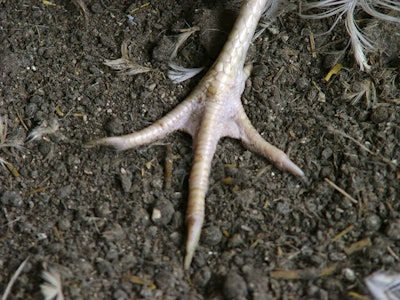
After reading the blog of my colleague Alexander Barajas Maldonado about energy self-sufficiency in poultry farming and how energy can become a product to sell along with chicken or eggs, I use it as a benchmark to expose this other crazy idea.
The poultry industry also producing energy is a brilliant idea. And as Alex says, "why not?" There are thousands and thousands of square meters of roofs that absorb heat for nothing, even just to increase heat stress. Not only could this energy be collected in solar panels, but, perhaps, we could even prevent it from reaching the chickens.
But I was thinking that, with the use of biodigesters in the farm, in addition to producing energy, we would avoid transporting poultry litter to other places. It would simply stay at the farm.
It is well known that in many places farms sell chicken manure as fertilizer, which is collected by trucks that then transported on roads, without any protection, dispersing material here and there, contaminating other farms, and perhaps disseminating diseases.
There was a lot of discussion about this during the outbreak of avian influenza in Mexico a few years ago. Images of trucks loaded with poultry manure that circulated on the roads of the most densely populated area of hens in the world. I'm not saying that this was the cause, but experts say it is just another vector.
So, alternative energy production, once a thing of rich kids who had nothing else to do and from countries that had their basic needs covered, can turn into a full business – in the broadest sense of the word. It can do this both in the developed world and in the developing world. What do you think?
















